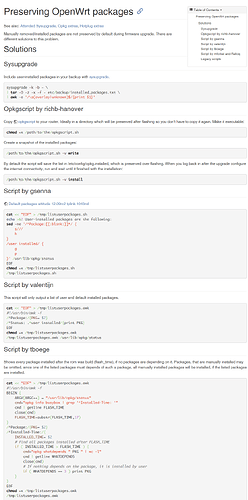Hi all,
Based on some feedback I got on this forum I decided to get a BananaPi RP4 for a 10Gbps fireware/router. However support for it, and many other newer devices, is only available in snapshots. At the time I wasn't too concerned, because I mistakenly assumed there'd be a new stable release every 6 months or so, like other platforms.
The last stable 23.5 (May) was released October 2023 and I've been searching everywhere I could to find mention of any 24.x plans. There are plenty of page in the wiki W.R.T. 23.x release planning and goals, but no mention (that I could find) of when we can expect the next stable release, and under what conditions. Its entirely possible my search skils have let me down.
I don't need a new stable release to be a big bang of new features, capabilities, new kernel or such. I (and I assume) others just need stable images for new hardware that don't put you on an update treadmil of snapshot. For example I currently can't install wireguard because, as I found out, kernel modules for snapshots can only be got on the day of the snapshot, and many other pains of running snapshot...
I realise this is a volunteer effort, so I would argue to make stable releases smaller leaps that require less effort and QA. - or have a way to add new hardward to existing stable releases.
I am competent enough to work with snapshots, but I hope you can understand I don't really want to replace my current internet router with something running an OpenWRT snapshot build. My current device is a PCengine's APU system, running Debian. With moving to OpenWrt I wanted to reduce how much tinkering it takes to keep things to running. I've had a lot of fire and forget succes with running openWrt on Netgear devices. As a father I don't have the time that I once did.
Trying to get this clarification, and to know if I made the correct decision. This is my last hope attempt, before giving up and putting Debian on the BananaPi. I am a big fan of OpenWrt all my 1Gbps Netgear stuff (mostly Wifi AP) is running it. and having my core routers run it too seemed like the way to go.
Thank you for your time and efforts in this project. I hope I did not miss some 24.x announcement somewhere =)
